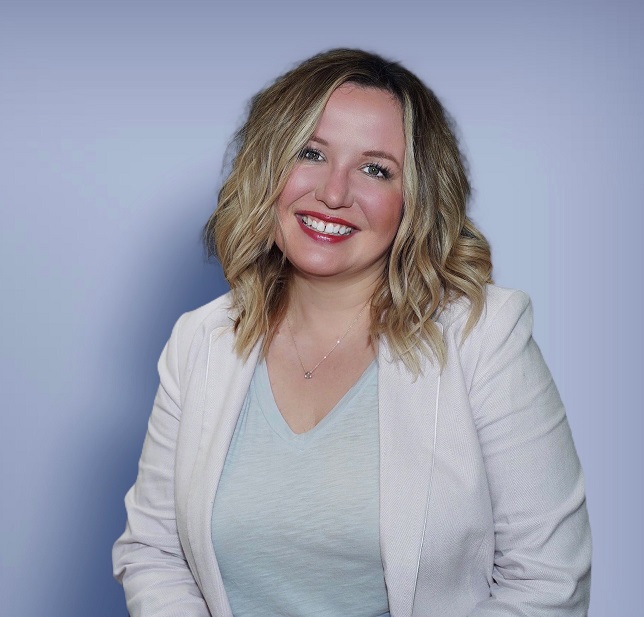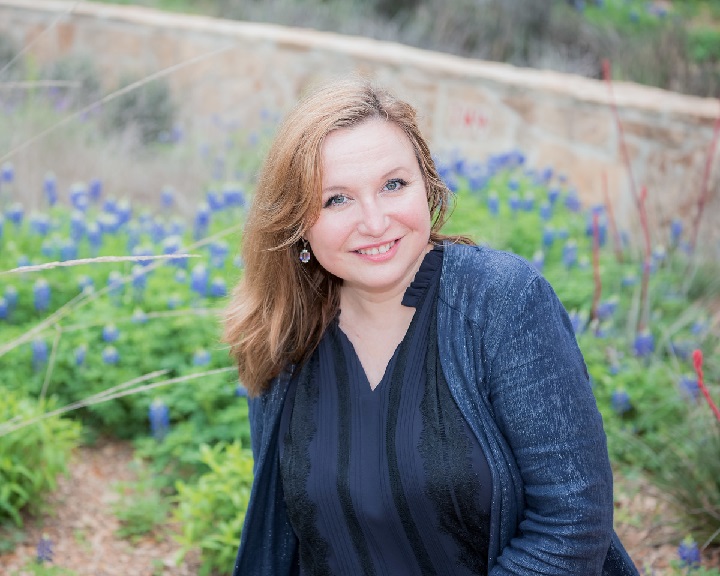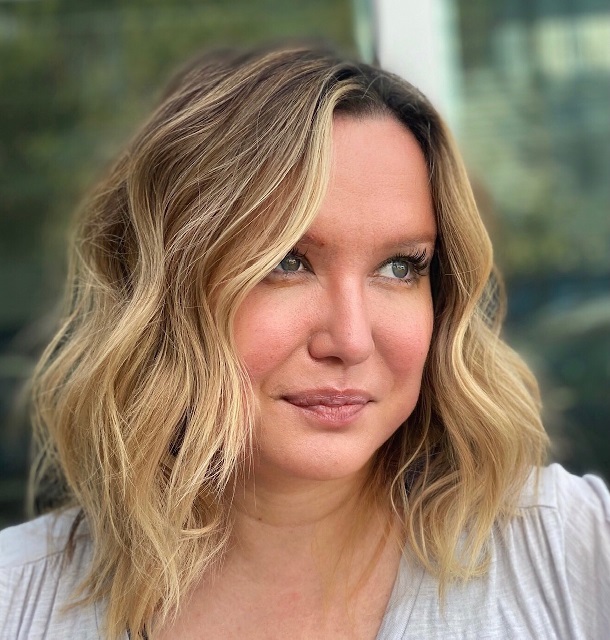
– Anastasia, tell your story in America. Where did you study and work before Texas?
I was born in a cold, yet wonderful country, Estonia, and lived in Parnu, a beautiful and safe small town until 1997. I applied to American colleges and accepted an invitation to study at Glendale Community College. So, in December 1997, I arrived in Los Angeles by myself, not knowing anyone.
In 3 days, I found and rented an apartment, because the college did not have student housing, and I registered as a new student. Studying at the college was a breeze for me, and although I could speak conversational English, I aced all the tests and became a star student.
While I was doing well at school, my life outside of school wasn’t easy. My parents let me know that they couldn’t support me financially after my first semester at the college, and I found myself with no money and no job.
With the help of my friends, I found my first job as a housekeeper paying $3 per hour, and was determined to continue my education. I was incredibly lucky and met several people who helped me to get the loans I need to pay for my tuition. Unfortunately, the loans were small and did not cover my living expenses or even the books I need for class. I tutored math, took cleaning jobs, and did everything possible to survive.
When I transferred to California State Northridge to study accountancy, I was working 60 hours a week as a bookkeeper and assistant manager at a spa in Beverly Hills. I also studied full-time, which was incredibly difficult, but rewarding as I learned the discipline to help with my success.
When I was a senior at Cal State, I found myself without a job and without a place to live. That’s when I met my future husband. He was my neighbor and invited me to live in his house while I was searching for a new place. He was very thoughtful and caring, and we started dating. After we dated for 6 months, he proposed to me. Thinking that he wanted to help me with my immigration status because he loved me, I accepted.
However, the same week we got married in 2003, he quit his job and told me that I would be the one supporting us both from now on. If I complained, he would divorce me and have me deported.
At the time, I found a part-time job, and there was barely any money to pay for rent and food. He would stay at home every day, playing video games and drinking with his friends. He tried to control my every move.
We frequently fought, and he started to physically abuse me. Fortunately, I found out about VAWA, the law that protects immigrants who are victims of domestic violence, and pressed charges against my husband after another violent beating. The restraining order helped to keep him away from me, but he kept stalking me for over a year.
When I received my Green Card, I was able to find a good-paying job and move to a new location. I focused on my mental and emotional health, worked with a psychologist, and grew my career.
I kept climbing the corporate ladder in Los Angeles until I felt I reached the ceiling. I worked as a financial controller and later as a CFO. At that point, I felt like I needed to start my own business.
I know it is unusual to tell such a private story in public. However, I would like to say that it’s okay to talk about domestic violence. Anyone can become a victim of any kind of violence at any time due to no fault of their own. There are many women, including myself who never encountered physical abuse again and lived happy lives after those incidents. Not everyone is that lucky, but there is hope that it can happen.
– Was Austin your choice, or is it a coincidence?
I made a careful decision to move to Austin based on a few factors: the opportunity to open my own business, economical situation, climate, and community.

– What do you like about Austin most of all?
Before I moved to Austin, and when was still in the research stage, I posted in Facebook groups in different states to see what Russian speaking community was like. I was lucky to talk to several wonderful women who were very welcoming. The welcoming community, most of all, influenced my decision to move. When I was ready to drive to Austin, several people offered me to stay with them until I get situated. I stayed with a genuinely nice family with my two cats while looking for a new apartment. I fell in love with South Austin, and for the last 3 years, lived in the area. After Los Angeles, l loved the greenery, the lakes, and a feeling of a small town. A lot of places, like Fredericksburg, remind me of Estonia. My only regret was that I did not move sooner.
– What is your profession and your work?
Right after I moved, I was able to start working for myself as an accountant. My business grew slowly, but steadily. I love helping small businesses with their finances planning, bookkeeping, and business management. My clients are wonderful and hard-working people, many of them have become incredibly good friends.
– Which of your projects are the most memorable, why?
In December of 2020, I started a new project, a Facebook group called Domestic Violence in Texas. I realized that a lot of Russian-speaking women were going through difficult situations, a lot like my own, but were afraid to reach out to anyone about it. I was hoping that the group would help them to receive the emotional support they needed. Right away, many women contacted me, and I realized that the support group was not enough. Women needed legal information, financial resources, and professional help. That’s why I opened a non-profit organization called Domestic Violence Center for Russian-Speaking Women.
The mission of the organization is to provide social, psychological, and legal informational support to Russian-speaking women who have suffered from domestic violence as well as assistance in ensuring the safety of women. The organization also educations the population on the problems of domestic violence.
We are planning to open a crisis line for women to call in, to provide them with the support and resources they need during these tough times. In the works are fundraising events and seminars that will educate people on how to recognize domestic violence. Our goal is to lower the percentage of domestic violence cases and murders among Russian-speaking women. That can be done only with the help of the community. The plan is to educate people who want to help on what to do when they encounter such situations. I believe that the organization can make a big impact on the lives of women when they need it the most.
Since I started working with dozens of women, I saw many difficult and hopeless situations, but I’ve also witnessed how many women were able to start a new life and change their situations for the better. It is incredibly rewarding to see the strength of women who keep moving forward and keep believing in a better future. I believe that a successful life is possible after the abusive relationship, as I have done with my own life.
– How about your family?
My family has been spread all over the world. Some of them are in Russia, England, Holland, Sweden, and Estonia. Going on a vacation is always a struggle to decide who to visit and where. Now my priority is to visit my grandmother in Estonia, who is 100 years old.
– What do you do outside of work? What are your interests and hobbies?
I like organizing social events. After the quarantine caused by COVID19, it became apparent that a lot of us needed social connections. I organized small gatherings for women, where we could all meet and get to know each other.
My other hobbies are helping with cat adoptions by fostering kittens. It brings me a lot of joy to see kittens finding loving homes.
I am also an avid reader as I read about 100 books a year. My main interests are in psychology, business, and marketing.
– What events did you remember the most?
The most memorable events for me are when the community came together to help women in need. Olga Ovcharenko helped to organize several events to gather household items and fresh food for victims of domestic violence and their children. This act was so memorable because I could feel the love that she had for helping these victims in need.
The support of the Russian Cultural Center, their generosity, and support mean a lot. Women know that whatever happens, they can count on the Russian community of Austin. All women need to do is ask for help.
– Do you think Austin needs a Russian Cultural Center? If so, how would you like to participate?
Being from Estonia, I saw how Russian culture has disappeared after the separation of Estonia from the USSR in the ‘90s. I value my roots and feel the need to be among people who understand me well and see me as one of them. That’s why having a Russian community is of the utmost importance.
When I first visited the Russian school in Austin, I had tears in my eyes after seeing happy children, hearing joyful laughter, and feeling familiarity and closeness. I remembered visiting Estonia and going to see my old school. To my astonishment, it was shut down. I stood there in the dark and empty. It was such a shock when I saw that. I cried then, but they weren’t like the tears I cried in the Russian school in Austin, as those were of tears of joy. I realized how important it was to have a Russian School for children and felt like I could help put the roots in Austin.
I’m also excited to see new projects in the area for adults, such as a business school, dance lessons, and painting classes.
– What would you like to wish for the Russian-speaking residents of Austin and Texas?
Since I moved to Austin, I’ve observed how welcoming and helpful community members are to each other. When anyone needs help, the community comes together to provide that help. The kindness and generosity of people in Austin are amazing. I wish for the community to stay connected, ask for help, and to participate in community events. There are a lot of opportunities to make new friends, volunteer, and make this world a better place for our families.

Contact information:
Anastasia Brenson
LinkedIn: https://www.linkedin.com/in/ab111
E-mail: anastasiasconsulting@gmail.com
Interviewer: Dmitriy Ovcharenko
Editor: Olga Falkowski
Publisher: Russian Cultural Center
